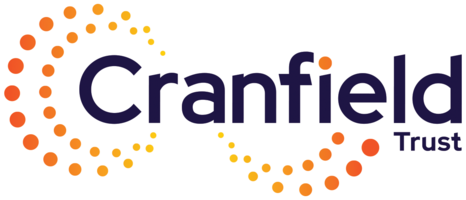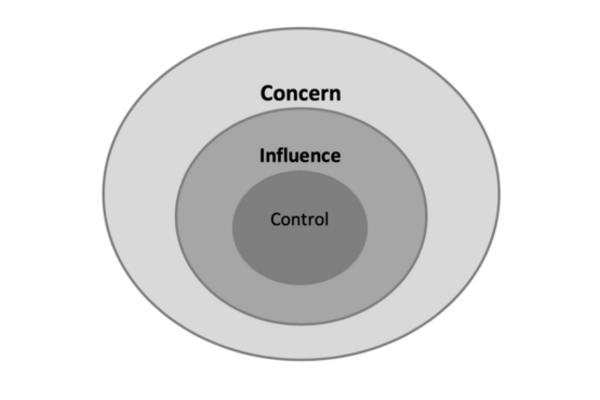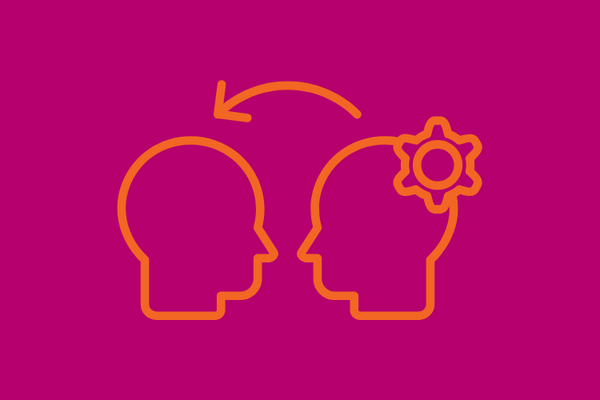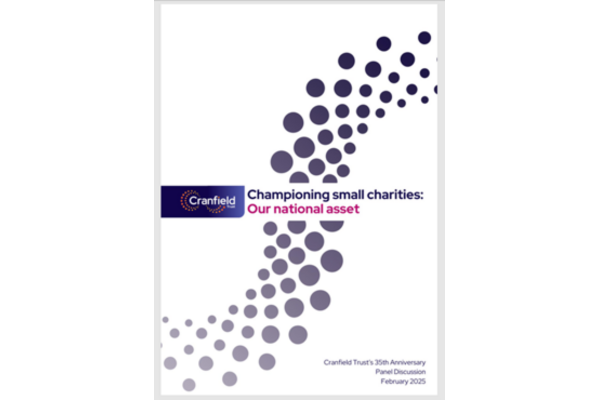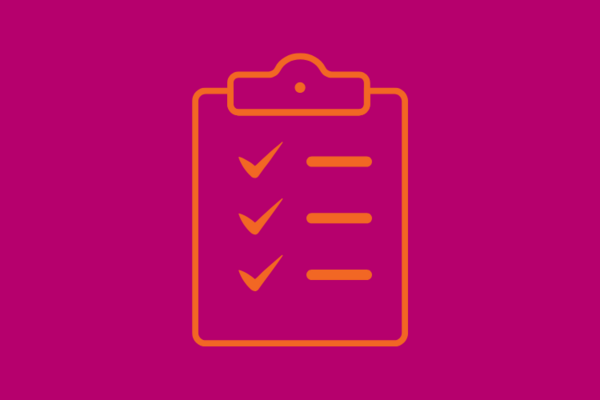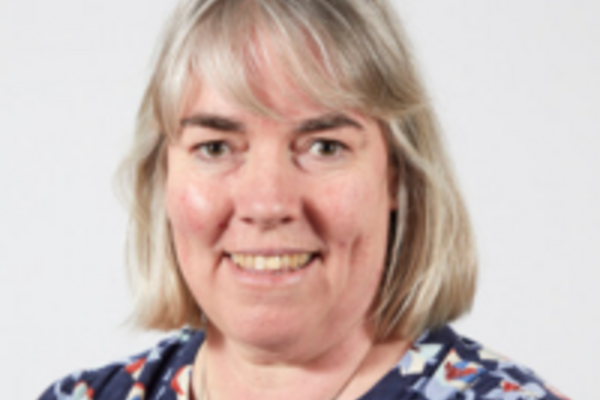This time is incredibly difficult - it’s scary and unknown and for many of us involved in running organisations there is the additional pressure of trying to work out what the right thing is for our employees, business and customers. Minds feel full of options and the barrage of social media posts and people reaching out can make it all seem even more overwhelming.
During this time I am reminded of a simple tool that helps me categorise my concerns and aids me to focus on the right things. It’s called the Circle of Influence and appeared in Stephen Coveys book the Seven Habits of Highly Effective People. This adapted version uses three concentric circles to represent the zones we can put our focus and attention:
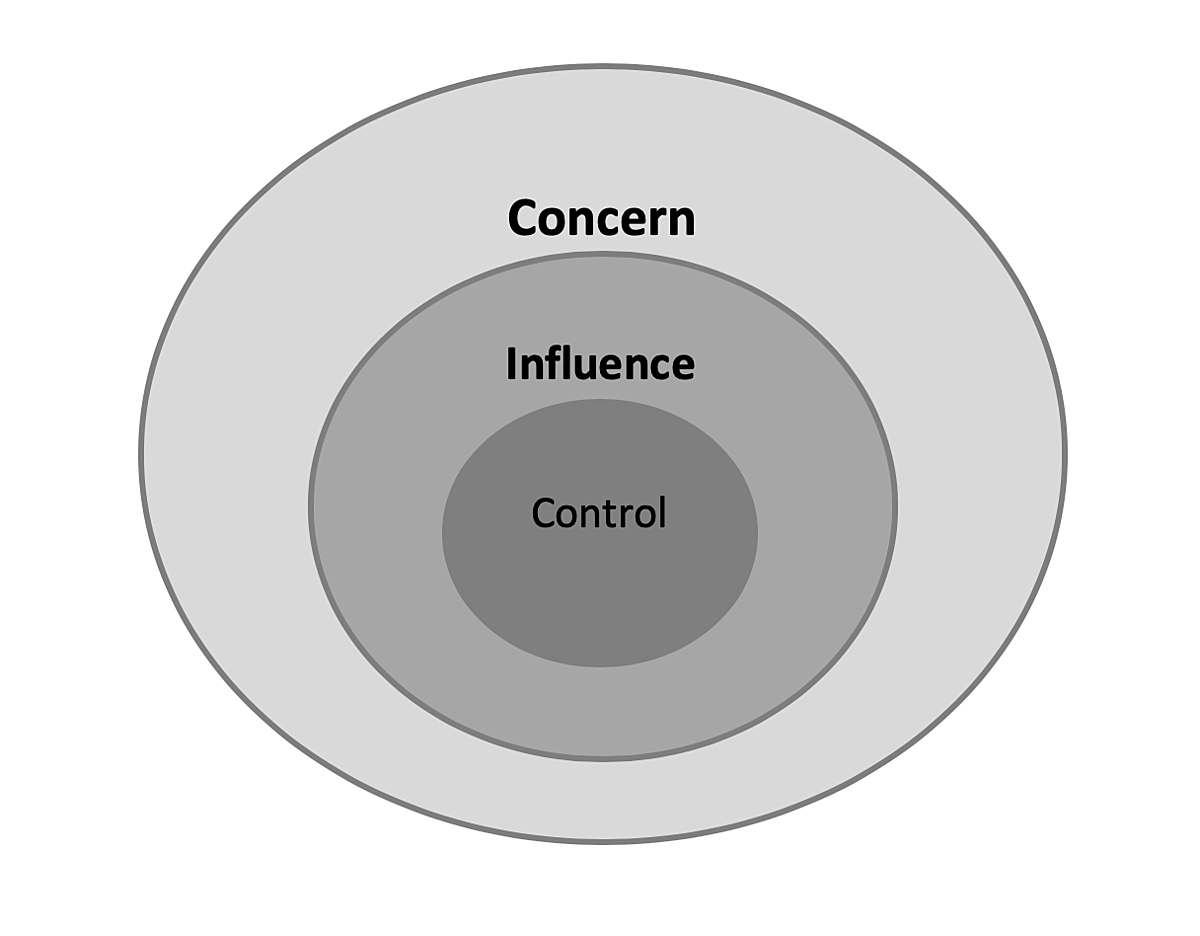
- The circle of concern is the large outside circle and represents all the things you care about
- Within the circle of concern sits the circle of influence, this contains the things you have direct influence over
- Within the circle of influence sits the circle of control, this contains all the things you have direct and full control over, things like your actions and your responses to adversity and opportunities.
This model is particularly useful when our focus is too heavily locked upon the circle of concern - we become fixated on things outside of our control and this thinking takes up too much of our precious time. Covey highlights that highly effective people actually focus most energy on the middle circle, the circle of influence.
The circle of influence is similar to a muscle - it can expand and enlarge with exercise but also waste away with lack of use. When people focus effort on the things they can influence they expand their knowledge and experience, and so their circle of influence increases.
Focusing on the things we cannot control, like global issues or sector changes, means we have less time and energy to spend on things we can influence. Consequently the circle of influence becomes smaller.
That is not to say that we can’t impact big issues, we just need to work out what part can move in to our circle of influence - in the current situation an example could be the thousands of people signed up to be NHS volunteers, they are taking action to influence within the situation.
Consider where your focus is. It may be helpful to write down where your current focus is so you can begin to guide your focus to the circle of influence. Sometimes when doing this the simple realisation that there are many things that sit in your circle of concern and have been dominating your thinking is a useful insight. For the things we simply can’t control, we just put those outside and park them or consider how we can move them in some way in to our circle of influence. When we do this we often realise we can influence more than we think, or can at least change our attitude and our response to them. Even the act of acknowledging this creates some relief.
There’s lots more information available on this model but as a simple tool to help you focus it can be invaluable.
During this time, please remember:
- You don’t have all the answers, none of us do - this experience is a great leveller, none of us have been through it before
- Fear and anxiety has both a psychological and physical impact, don’t underestimate it but try to use positive tools and support to best handle it
- This time will pass, yes things will have changed but we will change too and we will learn from this time both in what we do and how we do it
- You are not alone - keep talking and sharing, we all have ideas and perspectives and these can be a fresh take on a situation to somebody else. Cranfield Trust has additional on call support available, please use it
Useful article: Getting in Control: Focusing on the Right Things
Dr Elouise Leonard-Cross Bio
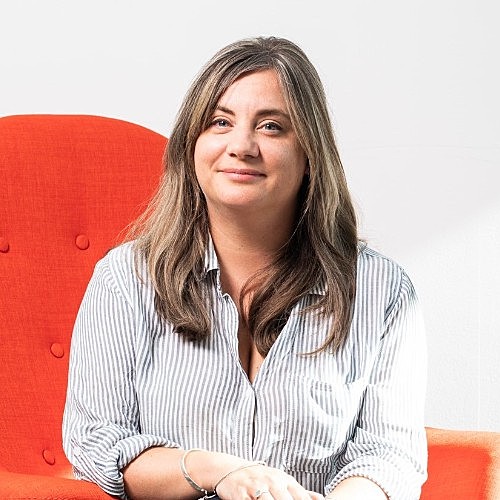
Dr Elouise Leonard-Cross is a strategic, innovative HR&D professional (Chartered Fellow), Occupational Psychologist and change management practitioner with specialist expertise in organisational analytics and people data (Doctoral research). She has experience within public, private and NFP sectors and consultancy roles, working with operations, management, executive teams and Boards.
Elouise became a Cranfield Trust volunteer in 2019 and has been working with charities to improve and shape the Human Resources function. She has been helping charities create infrastructure, policies and procedures, as well as supplying ER advice and guidance.
